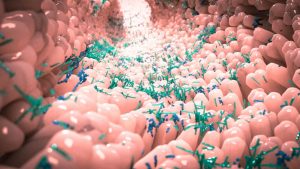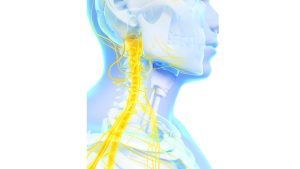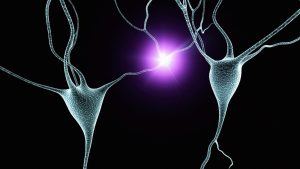What if we told you that there are millions of bacteria, fungi and viruses living in your gut? And that these microorganisms have a role to play in your daily mood and overall mental health? Yes, its true. There are trillions of microorganisms living inside your gut and they influence your mood because they can communicate with your brain. In fact, your brain and gut are in constant communication with each other via a pathway termed the gut brain axis. This blogpost is going to explore this gut brain connection and its impact on your mental health. If you want to know more about optimizing your mental health, keep reading!
What is the gut brain axis?
New research is showing that the gut and the brain communicate. What goes on in your gut affects your brain and vice versa. We have heard of the common phrases, ‘gut feeling’, ‘butterflies in my stomach’, ‘hate their gut’, ‘have the guts’ and many more. So, what is this gut?
Generally speaking, gut refers to your gastrointestinal tract (GI) which begins from your mouth, runs down your throat, includes the stomach, the small and large intestines and ends at the anus. Organs like your liver and pancreas are also a part of it. When talking about the gut brain connection we mostly refer to the intestines and more importantly the microbiome in the intestines.

The gut microbiome consists of the many microscopic organisms that live in the lining of the gut. These include bacteria, viruses and fungi. Yes, not all bacteria, viruses and fungi are harmful to us. In fact, some of them aid in maintaining our optimal health. This is why antibiotics can be extremely harmful for you. They get rid of not just the bad bacteria but the good bacteria in your gut as well. This negatively affects you because your body is in a symbiotic relationship with the gut bacteria. Your body provides it a place to live in and in return you get their services.
How does your gut bacteria help your body?
The gut bacteria have a role to play in the various functions of your body. When it comes to the digestive system, they help break down complex carbohydrates and fibre. They also aid in the synthesis of certain vitamins such as B1, B9, B12 and K. Research is showing the relationship between the B vitamins and depression. Vitamin B1, for example maintains nerve cell health and is important for brain function. Hence, low levels of B12 are associated with depression.
The microbiome: your second brain
Scientists are now saying that there is ‘brain’ in your gut, the gut brain or the second brain. They are referring to it as the enteric nervous system (ENS). The ENS is part of the autonomous nervous system, and it is made up of millions of neurons and glia in the lining of the digestive system. Second to the brain, it has the most complex neural network. It is essential for the movement of food in the digestive system tract and for regulating blood flow as well as overseeing the release of certain hormones and enzymes.
The world of your microbiome is unique to you. It is inherited at the time of birth and during breastfeeding. Later on, environmental changes such as your diet and lifestyle affect the nature of your microbiome.
The vagus nerve

Your vagus nerve is made up of many vagus nerves and is one of the nerves that connects the brain to other parts of your body. It begins from the end of the brain branching out and takes its route downwards towards the large intestine. It is a part of the parasympathetic nervous system, one which is responsible for involuntary body functions such as heart rate. It also acts as the medium of conversation between the brain and the gut. It carries sensory information about the gut from the ENS to the brain. In response to those sensory signals the brain sends motor signals to the gut.
Serotonin and the vagus nerve
According to research, 95% of serotonin, the well known ‘happy chemical’ is produced in the gut. This serotonin is essential for healthy working of the vagus nerve. In other words. serotonin is crucial for healthy communication between your brain and the gut.
Serotonin production in the gut has an impact on mood regulation and changes in the condition of the digestive system affect serotonin metabolism which could trigger mood disorders that include depression and anxiety. The relationship between your diet and gut microbial changes which affect mental health has become the subject of recent research studies. Harvard Medical School research shows that eating oranges and other citrus fruits decreases depression risk by 20% because their good influence on gut bacteria helps produce neurotransmitters like serotonin.
How does your gut affect your mental state?
You are in a symbiotic relationship with the microorganisms in your gut. It is a relationship of give and take, mutual harmony exists. Dysbiosis occurs when the natural balance of microorganisms in your gut is upset. Good bacteria may decrease while bad bacteria may increase. Moreover, the diversity of microorganisms is also upset, perhaps a particular virus or fungi dominates. Dysbiosis will quickly cause various issues in your body and negatively affect your mental health.
Neurotransmitters are important for communication in the gut brain axis. Your gut is essential for producing many neurotransmitters that are essential for mood and emotional regulation. These include serotonin, dopamine, norepinephrine and GABA. An imbalance in the gut will also cause an imbalance in these neurotransmitter levels which will directly impact your mood.

Research led by the microbiologist Jeroen Raes has found a significant difference in the microbiome of people suffering from depression and those who are not. The two bacteria that were consistently lacking in those suffering from depression were Coprococcus and Dialister.
Prolonged stress causes major changes in gut bacteria which results in dysbiosis. An imbalance in gut bacteria can increase intestinal permeability. Doctors also refer to this as they leaky gut. This can cause inflammatory substances and toxics to enter your bloodstream. These substances can also reach your brain and cause inflammation. As a result of this brain function can be negatively affected. Doctors report individuals with poor heath experiencing brain fog, anxiety and low energy.

Cognitive functions and memory are also likely to be impaired because of dysbiosis in the gut. For example, the Brain-Derived Neurotrophic Factor (BDNF) is a protein that plays an important role in memory and learning. The gut microbiome impacts the production of BDNF. If levels of BDNF are upset, then cognitive functions and memory can be impaired.
A study published in Aging-US compared the gut bacteria of individuals with Alzheimer’s disease and individuals without it. Patients with Alzheimer’s Disease showed less microbiome diversity when compared to the controls. The healthy gut bacteria naturally protect brain function through beneficial compounds, but harmful bacteria generate inflammatory chemicals which could lead to the development of Alzheimer’s disease.
What conditions can you develop because of poor gut health?
According to Cleveland Clinic, alongside poor mental health here are some of the conditions you may develop because of chronically bad gut health:
Irritable Bowel Syndrome (IBS), constipation or diarrhea
Anxiety and depressive disorders
Noncardiac chest pain
Chronic stress
Chronic fatigue
Chronic pain
Visceral hypersensitivity
Obesity
Neurodevelopmental disorders, like autism
Neurodegenerative disorders, like Parkinson’s disease
Nerve-related pain disorders, like multiple sclerosis.
Signs you have bad gut heath
Here are a few signs that can tell you how healthy your gut is right now:
• Your stomach is frequently upset: You frequently struggle with issues like constipation, diarrhea, gas, bloating and heartburn. This is an indication that your gut is taking more time to process food and is struggling to get rid of waste.
• You are always feeling tired: Chronic fatigue may point towards an unhealthy gut.
• Your sleep remains disturbed: Poor gut health can also cause insomnia or disturbed sleep which results in fatigue and body pain. As mentioned before 95% of the body’s serotonin is made in the gut. Serotonin regulates your mood and sleep. Therefore, am unhealthy gut causes sleep disturbances.
• You have certain food intolerances: If your body is struggling to digest some foods that may be because of poor gut health. As a result, you may experience abdominal pain, bloating and gas.
• Your sugar cravings are on a all time high: Eating too much sugar is bad for your gut health. It leads to inflammation and increases your likelihood of developing other diseases.
• You are experiencing skin problems: Sometimes skins issues like eczema, acne and psoriasis are related to bad gut health.
• You experience unexplained weight gain or weight loss: Poor gut health can cause ineffective nutrient absorption which can lead to an imbalance in blood sugar levels leading to eventual weight gain or weight loss.
• You have frequent mood shifts: Poor gut health has been linked to anxiety and depression.
• You have autoimmune issues: Poor gut health has been linked to autoimmune disorders like rheumatoid arthritis, multiple sclerosis and type 1 diabetes.
Since we live in times that are stressful and fast paced you may have noticed a few signs of an unhappy gut in yourself. We have also listed down various ways of improving your gut health.
How to care for your gut?
Research on animals is showing that different types of bacteria and other microorganisms in the gut are linked to healthy gut health and may be key in treating these disorders. Gut microbiome can be made more diverse and healthier by the following options:
• Probiotics
• Antibiotics
• Fecal microbiota transplantation
Since gastrointestinal disorders are a major result of bad gut health, there are other techniques that can help improve gastrointestinal health. These techniques will also help in improving the mood symptoms of bad gut health.
Relaxation therapy: The aim of this therapy is to help you cope with stress at its onset in a healthier way. Some of the techniques may include deep breathing, progressive muscle relaxation, imagery along with listening to restful sounds and music. According to research this approach works best when combined with CBT.
Cognitive Behavioral Therapy (CBT): Remember that healthy mental heath will automatically keep the gut happy. CBT helps clients deal with negative thought patterns which will lower stress levels. It will also address negative thought patterns in relation to physical pain and gastrointestinal symptoms caused by poor gut health.
What can you do at home to ensure a healthy gut?
While all of this works on a larger level, there are steps you can take at home to ensure a healthy gut.
A balanced and healthy diet
A nutritious diet is crucial for a healthy gut microbiome. Natural improvement of gut health comes from eating various whole foods along with plant foods. You should aim for the following types of foods in your diet:
• Soluble and insoluble fiber: Both types of fiber are necessary to relieve constipation and are found in most plants. They keep the bacteria in the gut healthy which in turn keeps the gut healthy.
• Probiotics and prebiotics: Probiotics are live bacteria found in certain foods such as kimchi and sauerkraut and some supplements. Prebiotics are food for those bacteria, so they are essential for probiotics. Prebiotics are found in fruits, vegetables and whole grains.
• Antioxidants: They are found in a lot of fruits and vegetables and help to fight the free radicals in your body which in turn reduces inflammation.
• Anti inflammatory food: Anti inflammatory foods include vegetables, fruits and whole foods. They do not include processed foods, sugar and additives. Chronic inflammation means your white blood cells are constantly attacking healthy parts of your body causing aches, pains and fatigue. Therefore, anti-inflammatory foods are necessary to keep the gut healthy.
Consistent Exercise
Research has shown that regular exercise also helps to increase the number of microbes in the gut, increase the diversity of good gut bacteria and improve the development of bacteria in the gut. Exercise also releases endorphins, the happy chemicals and lowers overall stress levels. This in turn reduces inflammation in the body and keeps the gut healthy. Therefore, a healthy diet must be accompanied by exercise to maintain good gut health.
In a NIH (National Institutes of Health, USA) study done on mice, researchers found that mice with a depleted gut microbiome were not inclined to physical activity, whereas mice with a normal microbiome showed physical activity. The mice with the less diverse microbiome got tired earlier. Researchers explained that mice with a healthy microbiome had double the amount of dopamine released in their body on movement, whereas the other mice did not. This shows that a healthy gut microbiome will lead to increased production of dopamine, the body’s reward chemical. Increased dopamine causes an increase in motivation to exercise. This study shows how a healthy gut may increase your likelihood of exercising.
Make sure to engage in any physical movement of your choice regularly. It does not have to be a gruelling 45- minute cardio session. You can also break a sweat by dancing to your favourite songs, walking or jogging In the park or playing your favourite sport!
Get good quality sleep
Melatonin is a chemical necessary for good sleep. Our bodies use serotonin to make melatonin. Poor gut health impacts serotonin production and as a result our sleep is negatively affected. Furthermore, an unhealthy gut causes inflammation which puts the nervous system under stress. This makes it difficult for your body to relax and get a good night’s sleep.
Avoiding screens at least an hour before bed and using stress management techniques to reduce stress levels in the body can improve our sleep quality.
Meditation, Mindfulness and Stress Management
Since the brain and gut are related to each other and are always in communication, the health of one affects the other. A healthy brain means a healthy gut and vice versa. So, use various stress management techniques during stressful times to maintain healthy brain and gut health.
According to research from UCLA Health, individuals practicing mindfulness have improved cognitive ability and emotional regulation. These individuals also have a healthy gut microbiome. So, stress does have a negative impact on your gut.

Some basic stress management tips you may practice include:
• Journaling: Writing down your emotions can better help you process them. Consistent journaling may help you pick up patterns in your mood and behaviour which you can work on.
• Deep breathing: A simple deep breathing exercise is the 4-7-8 technique. Breathe in for 4 seconds, hold the breath for 7 seconds and exhale slowly for 8 seconds. This will help to calm down your body bringing it out of the fight or flight mode.
• Spending time in nature: Be present fully in nature and feel your worries calm down. Tend to your problems with a fresh mind.
Conclusion: Why should you care about your gut health?
To sum everything up your gut is not just an organ involved in digestion. Rather it plays an active role in your mood, stress levels cognitions and memory. When your gut is unhealthy your mental state will also suffer.
However, you can take small steps to change that by making healthy lifestyle choices. Instead of staying in with friends, go to the park instead, play your favourite sport. Instead of a 100% junk and fast-food diet try adding fruits and vegetables to your recipes. These little steps that will go a long way to ensure a healthy gut.
Remember your gut and brain are a team, working together and supporting each other. Therefore, a good mental state means taking care of both your mind and your gut.
Let us know in the comments below if you have any of the signs of poor gut health! Feel free to share this post with anyone who could benefit from improving their gut health.

Паровые установки Unisteam com – надежные решения для сложных задач
производство и продажа спецтехники unisteam com